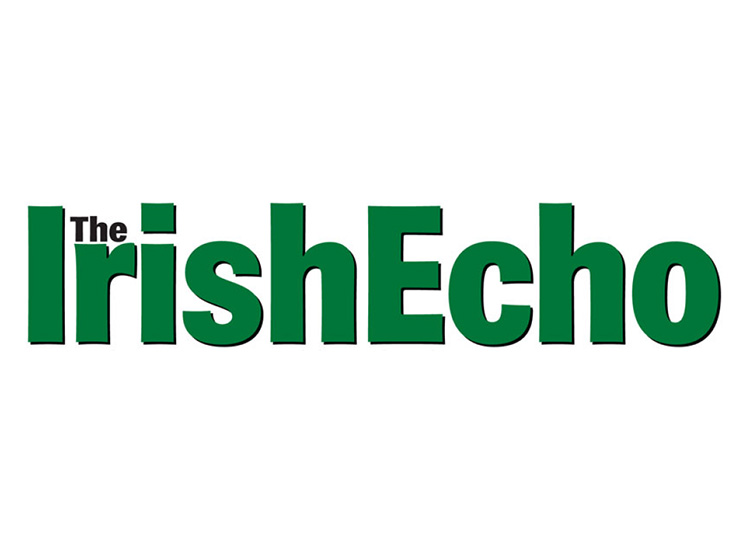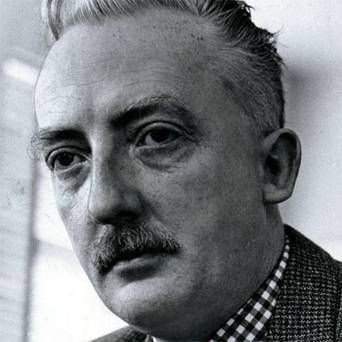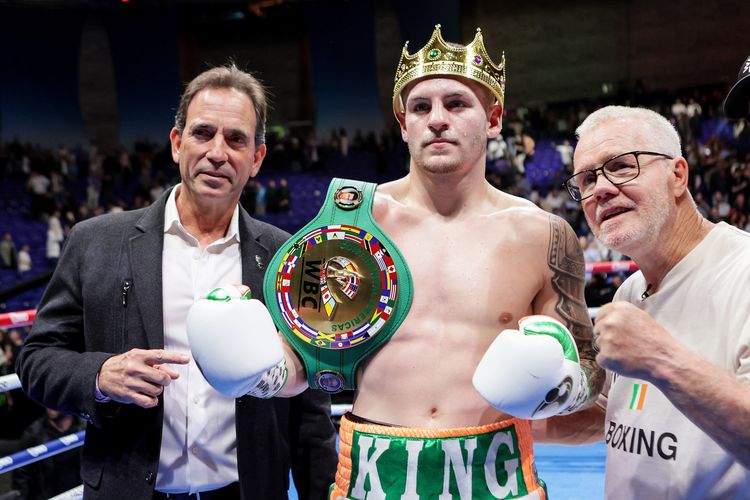Surf jpg
Ricky and Chris Martin.
By Evan Short
letters@irishecho.com
Is surfing the greatest Irish American invention ever?
When George Freeth, born to an Irish father and Hawaiian mother, first came to prominence in 1907 for his seemingly miraculous ability to stand on a plank of wood and ride it onto the shore through the waves, he became a national sensation and the sport quickly caught on.
Now a little over a century later, two men from the Irish seaside town of Portrush are aiming to revolutionize the multi-billion dollar industry by reinventing the way surfboards are made.
Ricky and Chris Martin run the “Alive Surf School” in the small County Antrim town.
Frustrated at how flimsy current surf boards are, they decided to go about building their own more robust versions.
Fast forward three years and they have just come second in a competition that saw almost a thousand companies compete to meet and discuss their idea with Richard Branson.
Ricky, 35, told the Irish Echo that their hard work was finally beginning to pay off.
“The PR we got from the ‘Pitch to Rich’ competition has just been phenomenal,” he said in reference to a competition initiated by Branson.
“Even though we didn’t win it got our name out there and we are getting enquiries from all around the world about our ideas.
“Just the other day we got an email from a surf school in the Caribbean. We were bitterly disappointed not to have won ‘Pitch to Rich,’ but we gave it a really good shout and did the best pitch we could.”
So what is it that Ricky and Chris have invented?
“What we are doing is addressing something that’s a major problem in the surfing industry. I run a surf school and my biggest expense each year is the replacement of surfboards.
“We established that the main problem with surf boards is the use of adhesives, and how over time the adhesive deteriorates and destroys the board.”
This deterioration can happen very quickly according to Ricky.
“We were contacted by a guy from Lahinch (County Clare) who had bought five new surf boards for his school and in less than three weeks they started to fall apart.”
The brothers’ reinvention of the surfboard involved doing away with adhesive altogether, and bonding the surfboards foam via heat.
This leads to more robust boards that can last up to ten times longer than the existing models.
In addition, all material used is recyclable – making them the only company in the world able to claim one hundred percent green credentials for their board.
To reinvent the surf board is one thing, but what makes Ricky and Chris’ achievement even more impressive is that neither of them have any background in engineering.
“We were both reasonably inept when it came to the technicalities, but Chris locked himself away and is now a bit of an expert in heat bonding technologies.
“We also got a lot of help from local engineering companies and Queen’s University Belfast and the Northern Regional College.
“But my brother Chris thinks not being engineers has helped us a lot. We kept being told what we wanted to do wasn’t technically possible, but because we wouldn’t take no for an answer we kept going.”
Surfing in Ireland has grown dramatically in the last decade with over a hundred surf schools now offering lessons around the island.
Ricky, who runs the “Alive Surf School” says the reason is the quality of the waves.
“The surf scene in Ireland is huge and on various levels. On a professional level, Ireland has got best waves in the world outside Hawaii, and is now known for it.
“The whole of the west coast has world class waves - and hundreds of them. In the last ten or fifteen years Ireland has produced a number of world class surfers.
“I run the Alive Surf School and the level I work with would be beginner, and that would be anyone from the age of four up to 88.”
For more information on Ricky and Chris and their surfboards visit www.skunkworkssurfco.co.uk.









